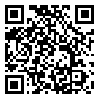Wed, Feb 25, 2026
[Archive]
Volume 9, Issue 1 (Winter 2023)
JCCNC 2023, 9(1): 57-68 |
Back to browse issues page
Download citation:
BibTeX | RIS | EndNote | Medlars | ProCite | Reference Manager | RefWorks
Send citation to:



BibTeX | RIS | EndNote | Medlars | ProCite | Reference Manager | RefWorks
Send citation to:
Azadbakht M, Taheri Tanjani P, Fadayevatan R, Foroughan M, Zanjari N. The Effect of a Peer Social Support Network Intervention on Self-management of the Elderly With Type 2 Diabetes. JCCNC 2023; 9 (1) :57-68
URL: http://jccnc.iums.ac.ir/article-1-405-en.html
URL: http://jccnc.iums.ac.ir/article-1-405-en.html
Mojtaba Azadbakht *1 

 , Parisa Taheri Tanjani2
, Parisa Taheri Tanjani2 

 , Reza Fadayevatan3
, Reza Fadayevatan3 

 , Mahshid Foroughan3
, Mahshid Foroughan3 

 , Nasibeh Zanjari3
, Nasibeh Zanjari3 




 , Parisa Taheri Tanjani2
, Parisa Taheri Tanjani2 

 , Reza Fadayevatan3
, Reza Fadayevatan3 

 , Mahshid Foroughan3
, Mahshid Foroughan3 

 , Nasibeh Zanjari3
, Nasibeh Zanjari3 


1- Department of Family and Community Medicine School of Medicine, Qom University of Medical Sciences, Qom, Iran. , m.azadbakht@yahoo.com
2- Department of Internal Medicine, Ayatollah Taleghani Hospital, Research Development Unit, Shahid Beheshti University of Medical Sciences, Tehran, Iran.
3- Department of Aging, School of Social Health, University of Social Welfare and Rehabilitation Sciences, Tehran, Iran.
2- Department of Internal Medicine, Ayatollah Taleghani Hospital, Research Development Unit, Shahid Beheshti University of Medical Sciences, Tehran, Iran.
3- Department of Aging, School of Social Health, University of Social Welfare and Rehabilitation Sciences, Tehran, Iran.
Abstract: (3020 Views)
Background: Participation in peer social groups could be used in health promotion programs for the elderly. The current study investigates the effectiveness of participation in a peer social support network intervention on the self-management of the elderly with type 2 diabetes.
Methods: This research is a quasi-experimental study with a pre-test-pos-ttest design with a control group conducted in 2019. Two health centers were selected as research settings from a single district in Qom Province, Iran. From each center, 46 subjects were randomly selected. Subjects in the intervention group participated in a peer social support network for 3 months (12 sessions), and the control group received only usual care. The outcome variable was self-management. The components of this variable include the level of hemoglobin A1C (HbA1C), diabetes distress (measured with Diabetes Distress Scale), awareness (measured with Davoodi’s knowledge of diabetes questionnaire), attitude (measured with diabetes attitude scale [DAS-3]), self-efficacy (measured with diabetes empowerment scale, [DES-28]), weight and blood pressure. Subjects were evaluated at baseline and at a 6-month follow-up. The obtained data were analyzed using t-test, Chi-Square, and Fisher test in SPSS software, version 22. The significance level was set at less than 0.5.
Results: The change in mean HbA1C of the intervention and control groups at baseline and 6-month follow-up was -0.7 and 0.1, respectively, which was significant (P≤0.0001). Moreover, the difference in changes in the mean values of diabetes distress (P=0.008), self-efficacy (P≤0.0001), and attitude (P≤0.0001) were significant. No significant changes were found in knowledge, weight, systolic and diastolic blood pressure (P>0.05).
Conclusion: The formation of social support groups may help control blood sugar in the elderly with type 2 diabetes. Seemingly, social groups can mainly impact through psychological factors such as distress control, attitude improvement, and self-efficacy enhancement.
Methods: This research is a quasi-experimental study with a pre-test-pos-ttest design with a control group conducted in 2019. Two health centers were selected as research settings from a single district in Qom Province, Iran. From each center, 46 subjects were randomly selected. Subjects in the intervention group participated in a peer social support network for 3 months (12 sessions), and the control group received only usual care. The outcome variable was self-management. The components of this variable include the level of hemoglobin A1C (HbA1C), diabetes distress (measured with Diabetes Distress Scale), awareness (measured with Davoodi’s knowledge of diabetes questionnaire), attitude (measured with diabetes attitude scale [DAS-3]), self-efficacy (measured with diabetes empowerment scale, [DES-28]), weight and blood pressure. Subjects were evaluated at baseline and at a 6-month follow-up. The obtained data were analyzed using t-test, Chi-Square, and Fisher test in SPSS software, version 22. The significance level was set at less than 0.5.
Results: The change in mean HbA1C of the intervention and control groups at baseline and 6-month follow-up was -0.7 and 0.1, respectively, which was significant (P≤0.0001). Moreover, the difference in changes in the mean values of diabetes distress (P=0.008), self-efficacy (P≤0.0001), and attitude (P≤0.0001) were significant. No significant changes were found in knowledge, weight, systolic and diastolic blood pressure (P>0.05).
Conclusion: The formation of social support groups may help control blood sugar in the elderly with type 2 diabetes. Seemingly, social groups can mainly impact through psychological factors such as distress control, attitude improvement, and self-efficacy enhancement.
Type of Study: Research |
Subject:
General
Received: 2022/08/23 | Accepted: 2022/10/9 | Published: 2023/01/10
Received: 2022/08/23 | Accepted: 2022/10/9 | Published: 2023/01/10
Send email to the article author
| Rights and permissions | |
 |
This work is licensed under a Creative Commons Attribution-NonCommercial 4.0 International License. |



